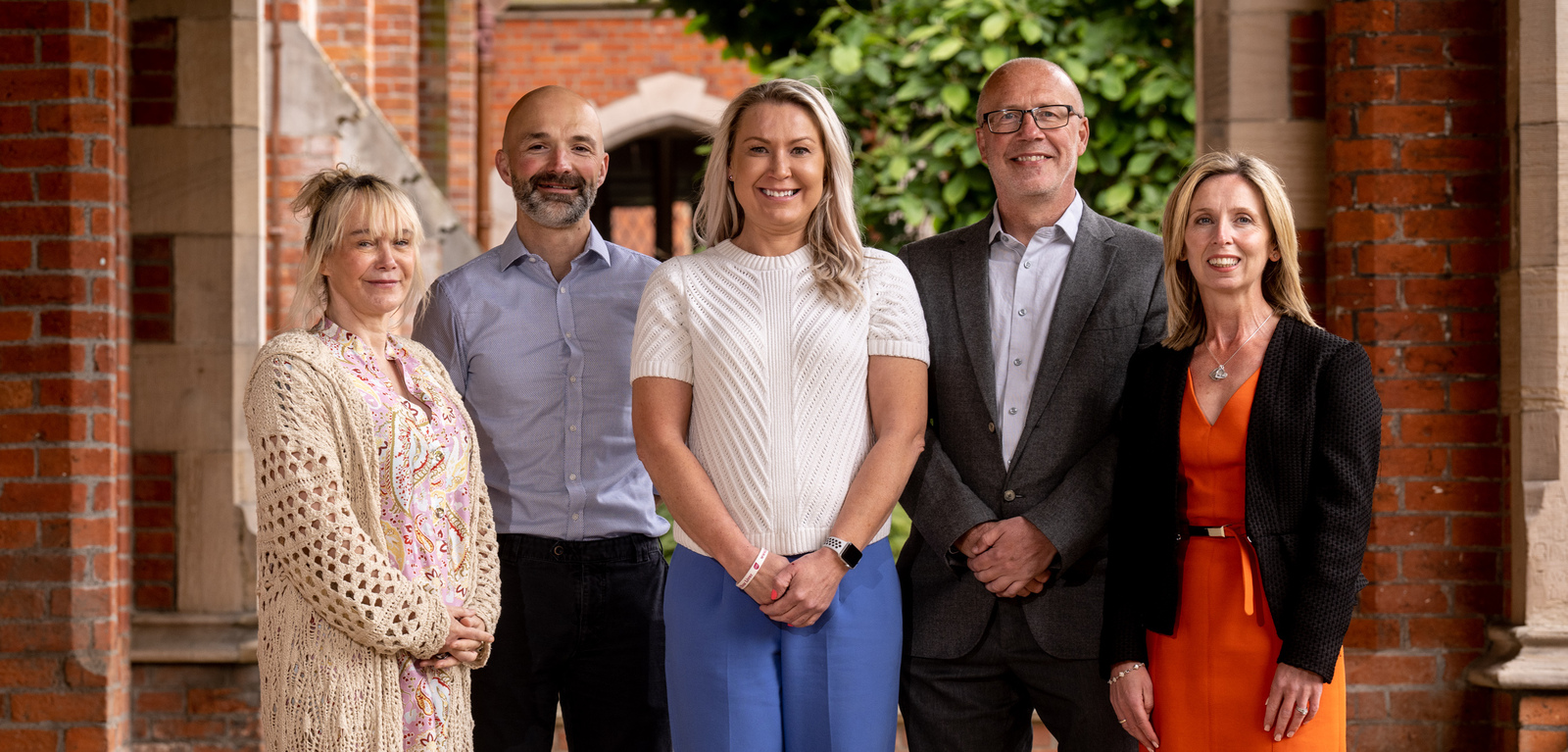Study suggests more assisted living places needed for people living with ARBI
Researchers from Queen’s suggest more assisted living places and a Step-Down facility are needed to facilitate the transition from discharge into the community for people living with Alcohol Related Brain Injury (ARBI) in Northern Ireland.

The findings are from a study into the Leonard Cheshire ARBI unit, a regional specialised 14-bed rehabilitation facility for individuals with a diagnosis of ARBI, to understand whether the unit improves the psychological, functional, social, and relational outcomes for patients living with ARBI.
Other recommendations from the study include:
- There should be immediate, increased availability of supported living space for people who may continue to experience symptoms of ARBI after returning to the community.
- The current service could be extended to include community referrals for cases where people do not yet require hospitalisation to significantly reduce the number of people requiring inpatient treatment and to reduce cost for the NHS. Also, an extended service could reduce the risk of individuals becoming involved with the judicial system.
- The Leonard Cheshire ARBI unit building should be expanded to address the needs of the service users and staff, as currently the lack of adequate space is having an impact on some aspects of the service user recovery journey.
- The service should be expanded to all Health and Social Care Trusts across Northern Ireland.
The research was led by Dr Anne Campbell, Reader in Mental Health and Substance Abuse at the School of Social Sciences, Education and Social Work at Queen’s, in collaboration with Leonard Cheshire and the Belfast Health and Social Care Trust.
ARBI is a brain disorder caused by a person regularly drinking too much alcohol, or binge-drinking. It causes memory and cognitive ability to decline over time, especially if the person drinks too much over many years.
It has been estimated that alcohol-related brain changes are present in 35% of those with alcohol dependency and affecting approximately 30,000 people in Northern Ireland.
The study was based on 65 interviews and a range of psychometric tests with service users of the Leonard Cheshire ARBI unit and interviews with family members and staff at the facility over an 18-month period.
Almost all service users stated that they had used alcohol to ‘escape their reality’. Most people used alcohol to numb the pain because of a single trauma event or persistent traumas experienced throughout the course of their lives.
Speaking about the importance of the study, Dr Campbell commented: “This is an important study which indicated that service users demonstrated significantly improved physical, emotional and mental health and well-being during their stay at the Leonard Cheshire ARBI unit. It is also the first study in the UK which examined the qualitative narratives of patients, family members, carers, and workers in the ARBI sector.”
Speaking on behalf of the Department of Health, the Chief Scientific Advisor Professor Ian Young said: “I am pleased to see Northern Ireland leading on this key piece of research that can help inform policy and practice both here and across the UK. It is important that we better understand the scale of ARBI in order to develop appropriate service models and future support pathways to help people impacted by this issue to recover. I therefore welcome this latest study as it very much aligns with our substance use strategy Preventing Harm, Empowering Recovery in that people should be supported throughout their recovery journey.”
Diane Watson, ARBI Outreach Lead at Leonard Cheshire commented: “Ideally what we need is clearer pathways of care for Alcohol Related Brain Injury in Northern Ireland. Having specialist teams in each Trust is essential for early identification and treatment of the condition. There is also insufficient provision of specialist age appropriate supported living which needs to be addressed as a priority. All of this can only be achieved with additional support and funding.”
Dr Joy Watson, Consultant Psychiatrist at the Belfast Health and Social Care Trust said: “Alcohol Related Brain damage is a devastating condition for patients and their families. It is caused by the toxic effects of alcohol on the brain and can present very similarity to Dementia.
“The good news about the condition which has been further supported by this study is that the right treatment can reverse the condition in up to 75% of people, 25% getting full cognitive recovery if abstinence from alcohol is maintained. This contrasts with other cognitive disorders and dementias which are irreversible.
“This study supports the need to invest in these services. These patients are frequent attenders to emergency departments and can have long hospital stays. Providing these much needed interventions reduces the burden on health care yielding financial savings at the same time as improving and saving people’s lives which fits with quality, efficient and compassionate healthcare.”
Media
Media enquiries to Zara McBrearty at Queen’s Communications Office on email: z.mcbrearty@qub.ac.uk